Tems Is Just A Girl
This story originally appeared in the 2024 September/October print issue, on stands on August 26.
Gabriella Karefa-Johnson’s conversation with 29-year-old international superstar Tems signifies a profound blend of culture, artistry and representation, underscoring the importance of authenticity and self-expression. Karefa-Johnson’s groundbreaking role as the first Black woman to style a Vogue cover, paired with Tems’s rapid ascent in the music industry, highlight the unique challenges and triumphs that trailblazing women experience. As the two share and connect on the specifics of their journeys, they reveal the resilience that propels Black and diasporic women forward—inspiring us to follow our own paths with similar courage and passion. Their dialogue transcends style and music, offering a heartfelt acknowledgment of the influence of these women as they issue a compelling call to stay true to oneself while navigating the pressures of fame.
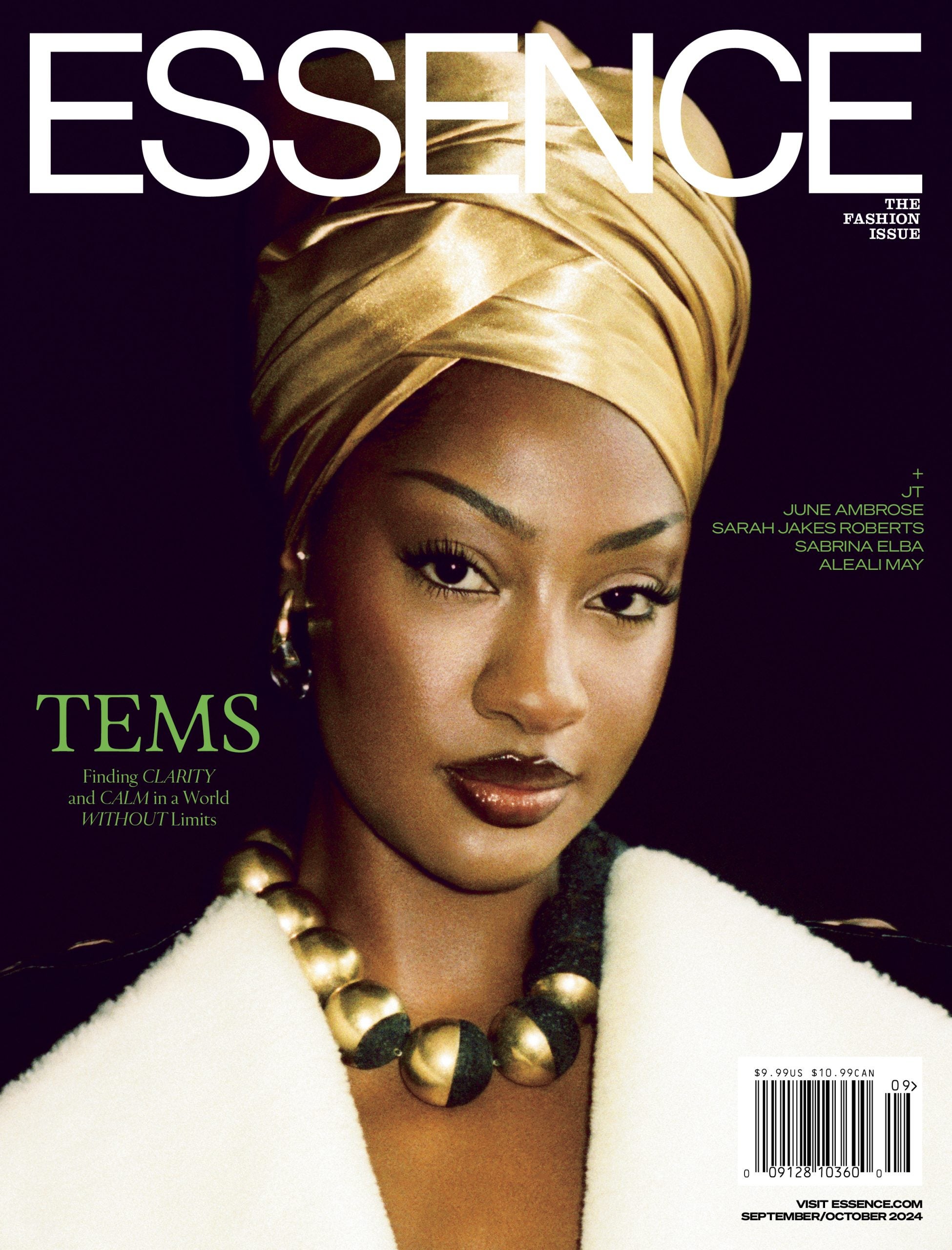
Gabriella Karefa-Johnson: Tems! I missed you already.
Tems: Oh, miss you too. How have you been?
Karefa-Johnson: I’m good. I’m back in New York and just reflecting on our shoot. Obviously I am so excited to be in conversation with you—and asking questions through the lens of style and fashion, because I think that that might be our common language.
Tems: Definitely. I think so.
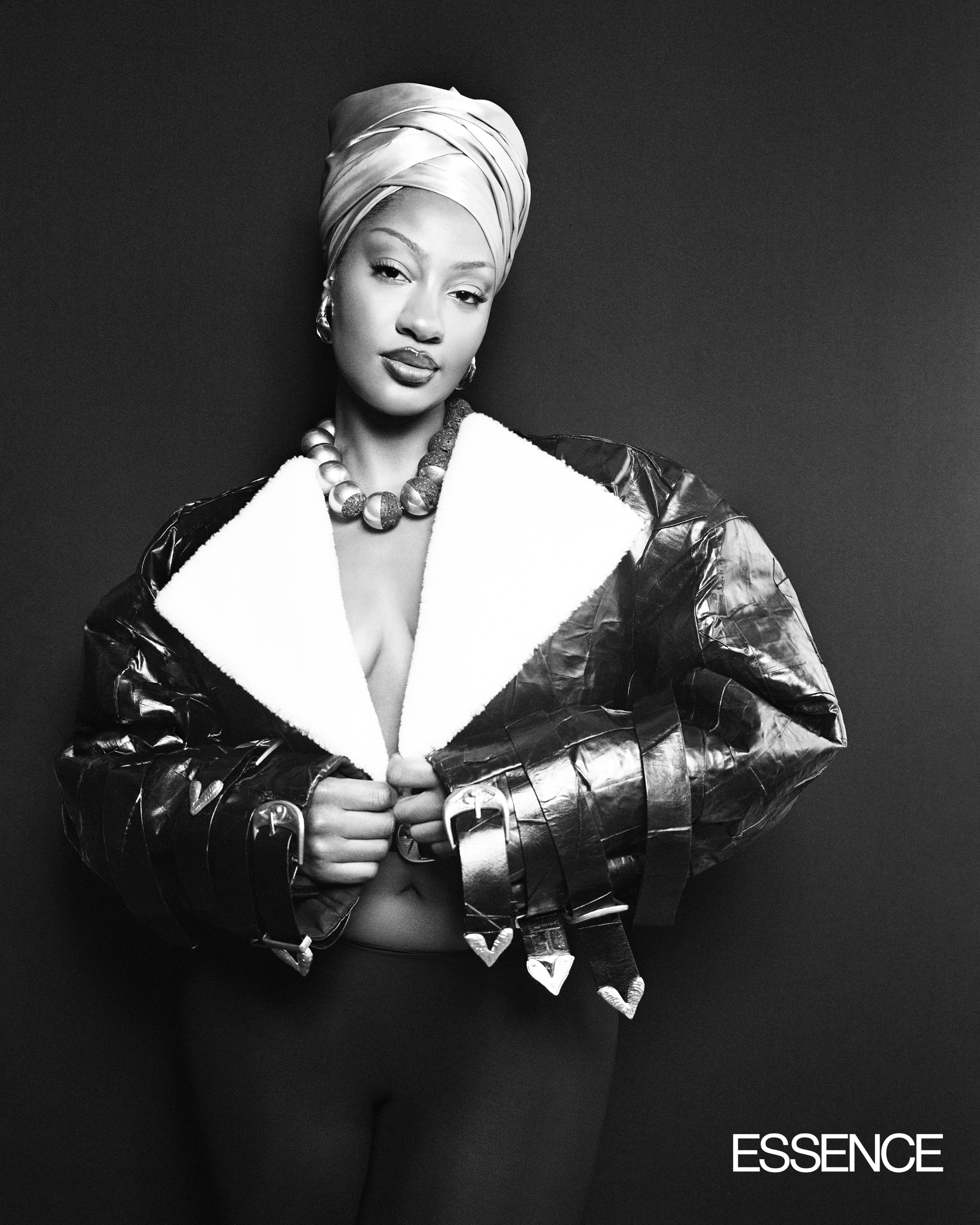
Karefa-Johnson: I would say “sense of style” is a currency that audiences are really interested in these days, and I wonder if your style has evolved as you’ve gained more visibility on the global stage.
Tems: I feel like with me traveling, meeting different people, exploring and being exposed to new cultures, and just seeing new fashion ideas, I find myself more interested in trying new things. I could see a balloon skirt, and maybe two years ago I would not even be thinking of one. But today that would be interesting. I want to try it. I want to see how I feel in that. So I do a lot of experimentation now, but it has nothing to do with the outside world. It’s just my inner creativity trying to burst out—just waiting to be expressed, really. I just find myself wanting to try new clothes, new styles, new outfits, new hairstyles, just new everything.
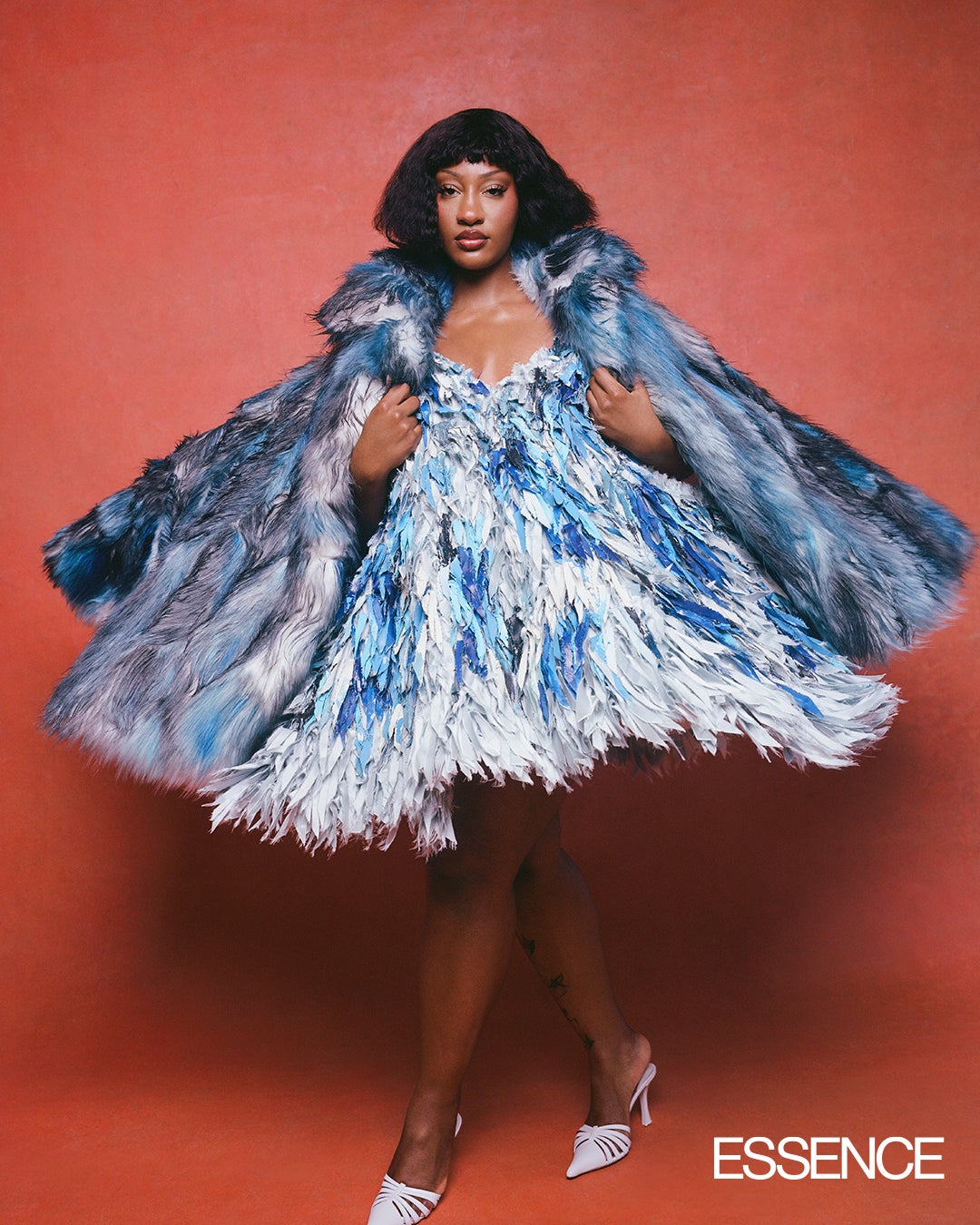
Karefa-Johnson: Are you ever surprised by what people think that you’ll be like or who they think you are in their head?
Tems: Yeah, I mean, I wouldn’t say surprised. I’m more intrigued.
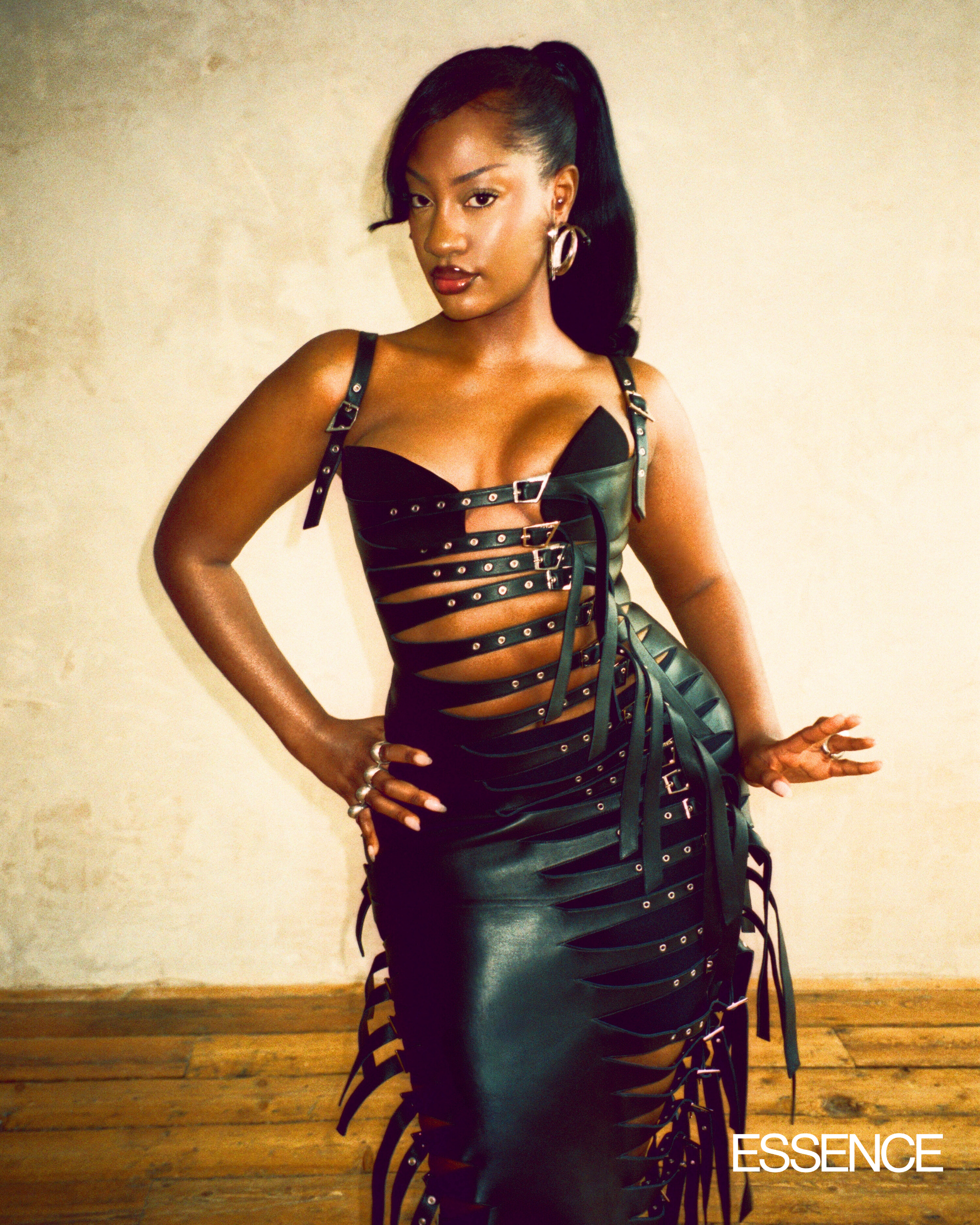
Karefa-Johnson: Well, I have to say, that’s a very interesting point of view, and it’s not always the case. I think being open to evolving in your style, and being open to collaborate with someone, is such an amazing virtue that I hope you keep forever and ever. Do you think there are elements—even if it’s just generally—that you try to incorporate into those new looks, just to kind of cement who you are?
Tems: I like fine jewelry, and I like crystals and rocks, and I enjoy silver and things that are mixed as well.
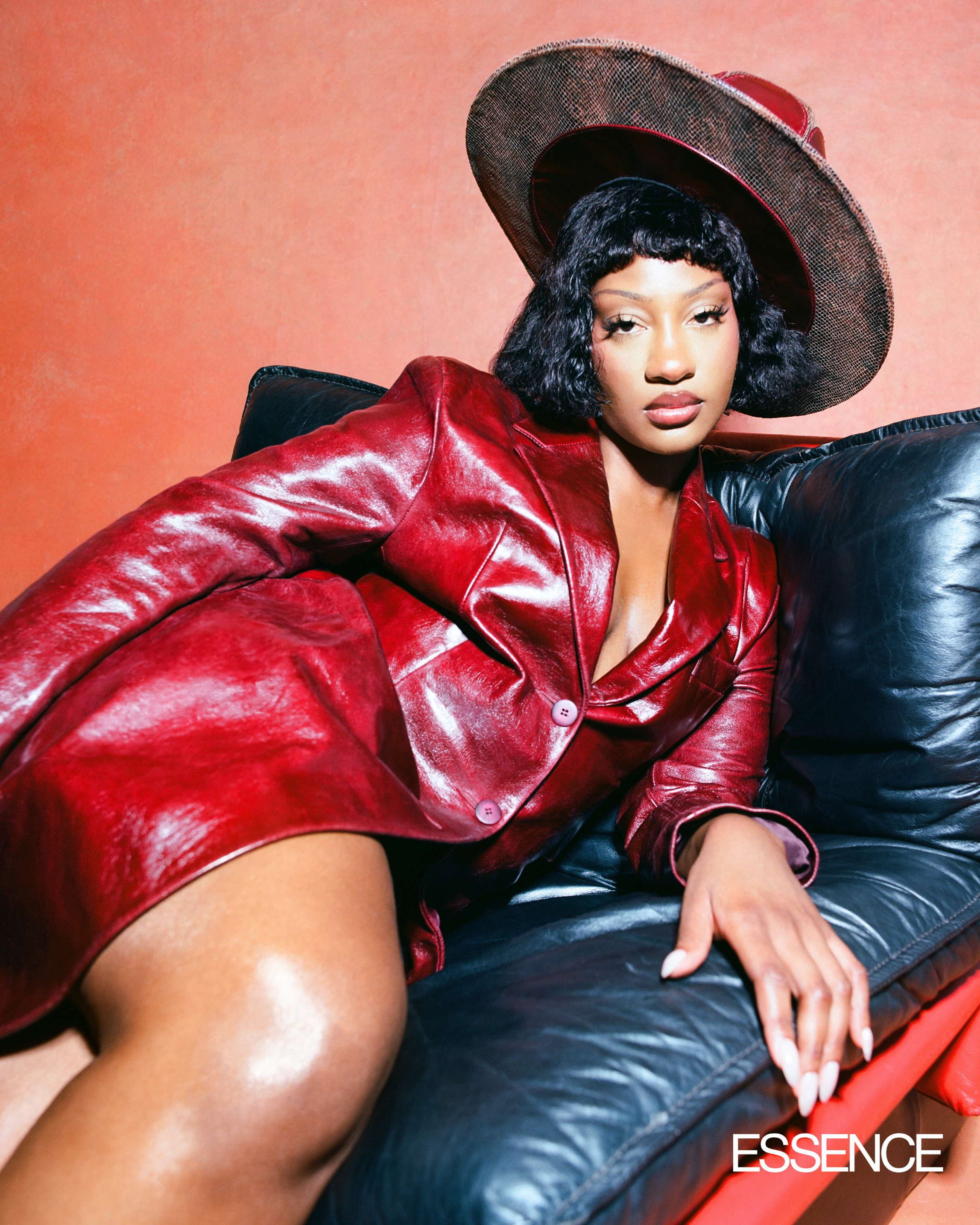
Karefa-Johnson: Accessories and jewelry are a way of illuminating your presence onstage. That’s so interesting.
Tems: I like to be comfortable when I’m onstage, because the more comfortable I feel, the better my performance. And I just like to add a little bit of something unexpected in every look, you know.
Karefa-Johnson: That speaks to the idea that one of the things people love so much about you is that you’re not willing to compromise your comfort, or what feels authentic to you in your performance, in order to project a certain image. I wonder if you have recognized that you mean so much to so many people in that way—in a “self-love and acceptance” way and an “authentically expressing yourself” kind of way. Do you accept being designated as somebody who’s pushing that kind of positivity out into the world?
Tems: I appreciate that that’s what’s coming across. And I do think people should be themselves. I can’t really be anybody else. It’s just not going to work. You are doing yourself a disservice trying to be someone else. You should just be who you are. Once you start trying, you’ve already missed the road. That’s a takeaway from how I live my life for sure.
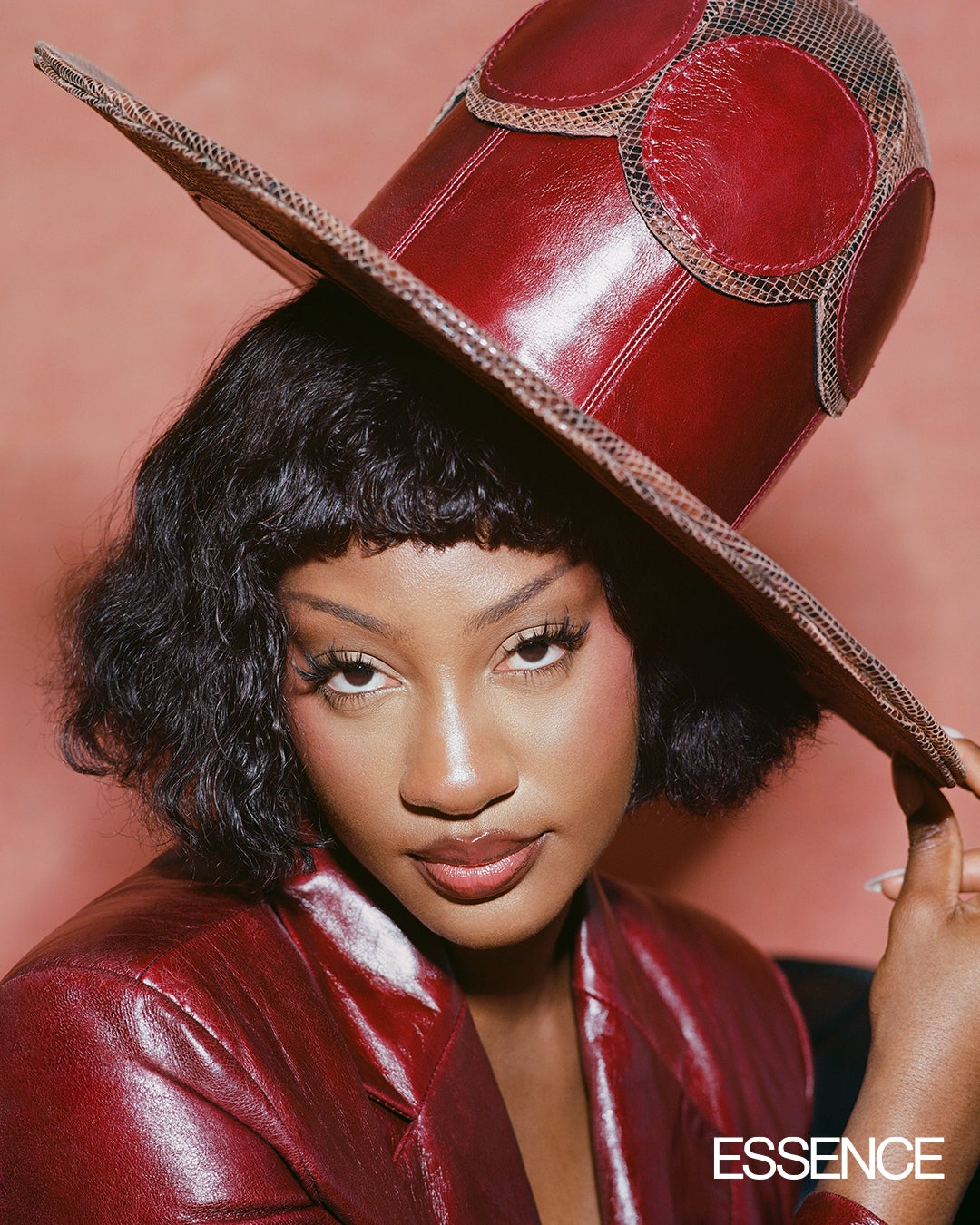
Karefa-Johnson: It’s not something that you focus energy on communicating. It just happens to be a happy side effect of you being you.
Tems: You should be yourself even if something else is expected of you. You win, automatically, when you are yourself, no matter what that looks like. That’s why there’s variety. We’re different and are not all meant to be the same. And I know there’s a standard, but there shouldn’t be one. There shouldn’t be a standard of what people should dress like if they’re artists, or what people should dress like if they’re women. I just feel like we’re all unique. There shouldn’t be a requirement. That’s what I mean by standard. There shouldn’t be a requirement or some kind of expectation that you dress a certain way.
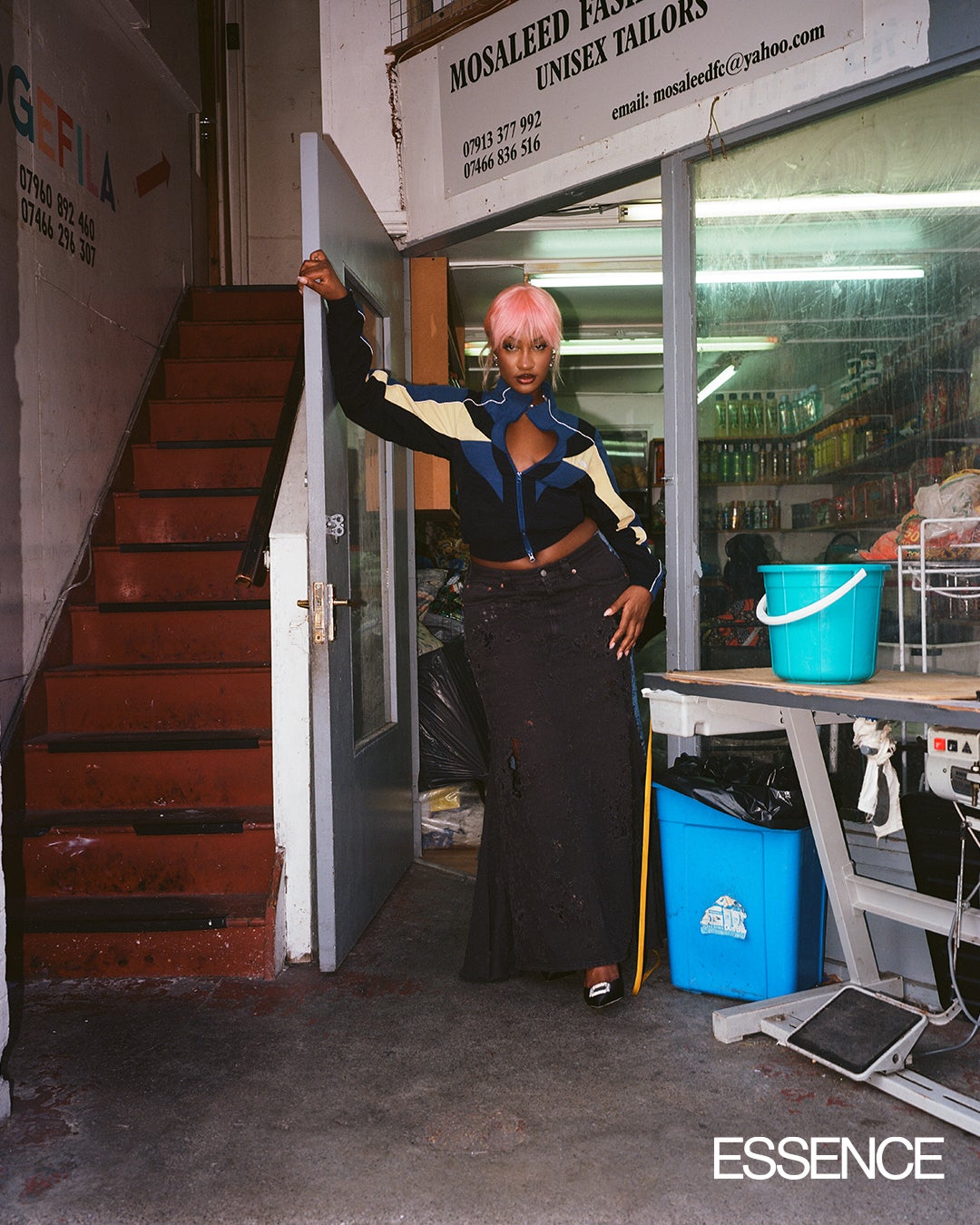
Karefa-Johnson: I also think, coming from a West African family myself, I have familial pressure to set a certain standard or behave a certain way or present in a certain way. And I want to know how you handle the pressure of expectation, even just globally, as an ambassador to the world of young African women.
Tems: Well…
Karefa-Johnson: Which, by the way, you shouldn’t even have to. I just want to acknowledge that sometimes I really resent the expectation that I have to be somebody who is representative of an entire demographic of women, all of us being different. But I think the reality is, so much of that is projected onto folks on the world stage—and I just wonder what you do to handle that pressure.
Tems: I have to think about why I’m doing this and who I’m doing this for. Otherwise, once you give in to considering what people think about you, and what you should be doing to be seen a certain way, then you kind of enter this race. You enter this unsustainable way of living. And it is fine for some people. You’re not meant to be liked by everybody. So that’s why you have to really think about what you’re doing and who you’re doing it for, and why—because people who are for you are going to love you regardless, just by you being who you are. You’re not going to have to try to be anything. You’re just going to receive love. Because you were living your life before all these people came along.
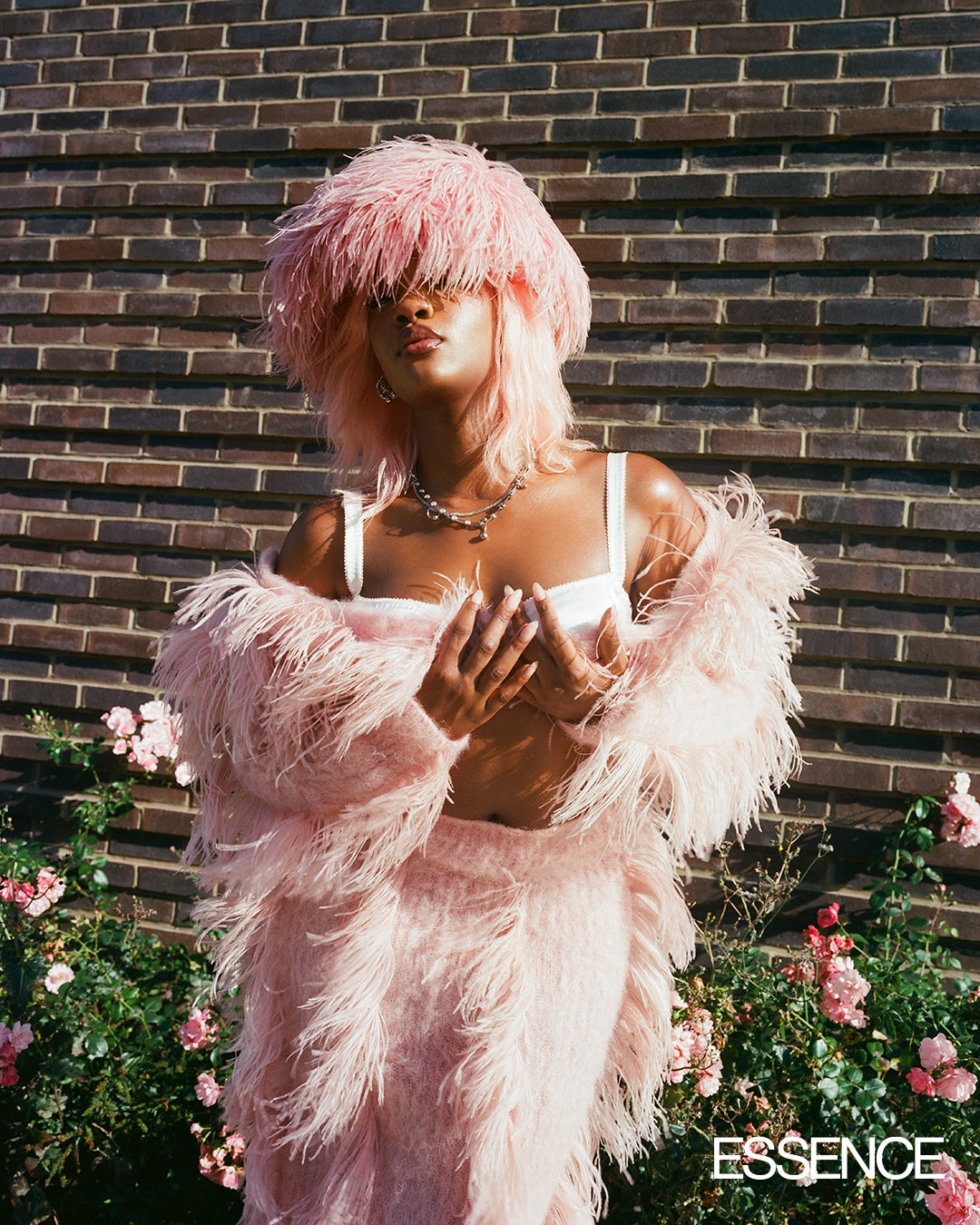
Karefa-Johnson: I just want to know where that impulse to protect that identity came from. Ways in which you lean into showing up as a Nigerian woman. Ways in which that is successful in your fashion.
Tems: I feel like now, in the world, everybody wears many different things from different places. We’re not always wearing our traditional clothing that we’re used to wearing, from where we came from. But it doesn’t change who we are. I’m always going to be Nigerian. You have to show up as who you really are, in your blood. I know my culture: I’m Yoruba. And I know—if I was to get married tomorrow, I know the attire that we’re all wearing as a family. And anything that has to do with representing Nigeria always needs to reflect that. As a Nigerian, I feel emotional, which is what I think art should be. Art is emotion expressed.
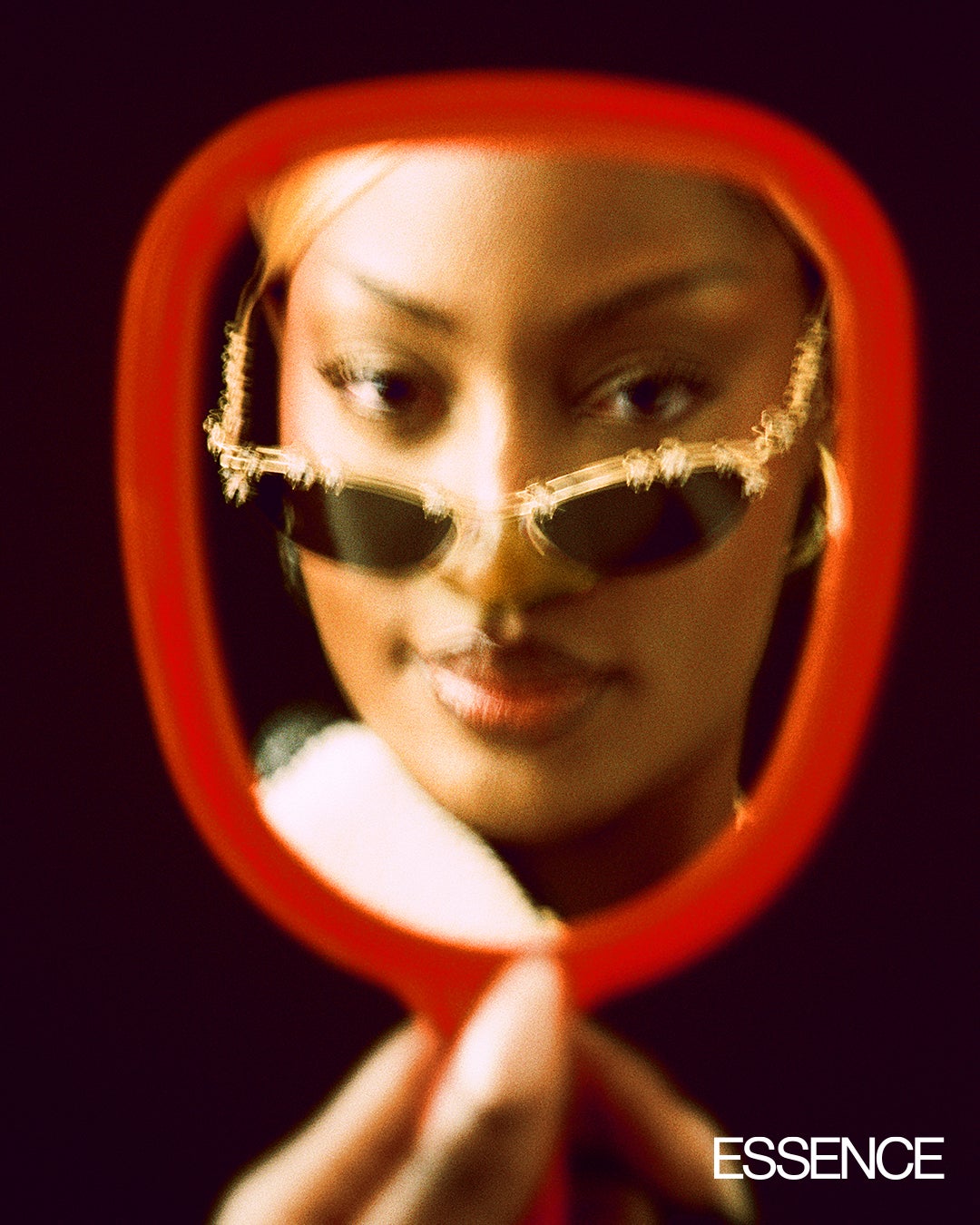
Karefa-Johnson: And do you find that it’s pretty specific in your case? I mean, we all know the ways in which the music industry collapses genres. You’re going to be an “Afrobeats musician” to certain music writers, whether the genre of your newest single is Afrobeats or not.
Tems: I don’t know what it is that people expect of me. And if I start thinking about that, I don’t know who will give me the answer. Maybe one person in Chicago says, “This is what I personally expect of you.” But somebody in Nigeria says, “Well, this is what I personally expect of you.” And somebody else in Japan is saying, “Tems, this is what I expect you should be doing.” So whose expectation are we talking about? Are we talking about the city of Lagos, their expectation? Are we talking about the South African fans? Are we talking about the fans in New York? There’s so many people in the world, and they all have expectations. I don’t actually know what those expectations are, and I don’t try to know. I am only a girl. I’m just a girl.
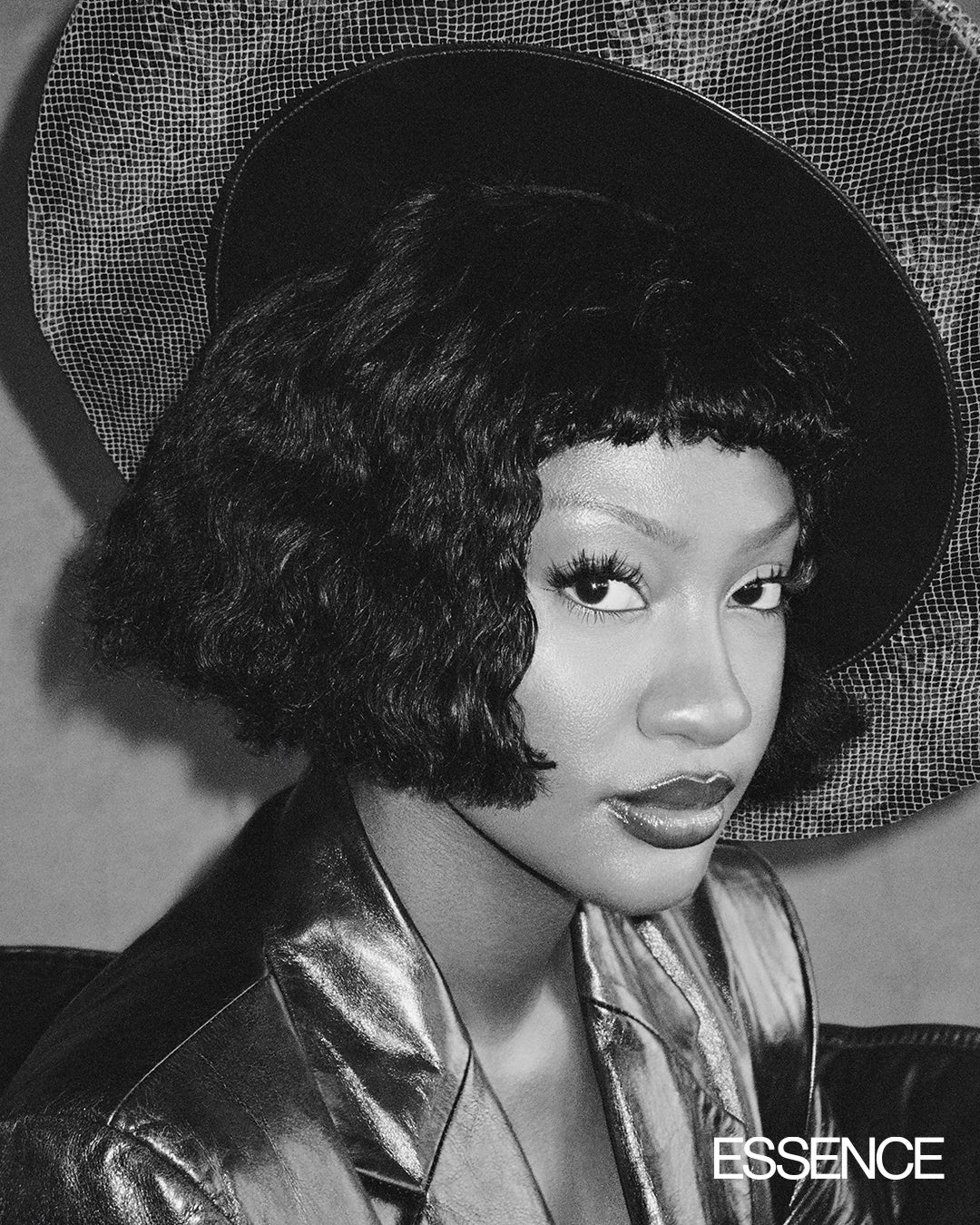
Karefa-Johnson: That’s your catchphrase now.
Tems: I’m just a girl. I can’t wake up every morning thinking about what people expect of me. The better question is: What is it that I expect of myself? What is it that God expects of me? Why did I wake up, and why was I born into this world? Let’s start there, rather than thinking about other human beings. Nobody has it figured out. You have to live your life in a way that is real. You have to be present always—and think, Okay, where am I right now? This moment, right now as I’m speaking? Where am I? What do I need to do? How do I feel right now? What do I want for myself right now?
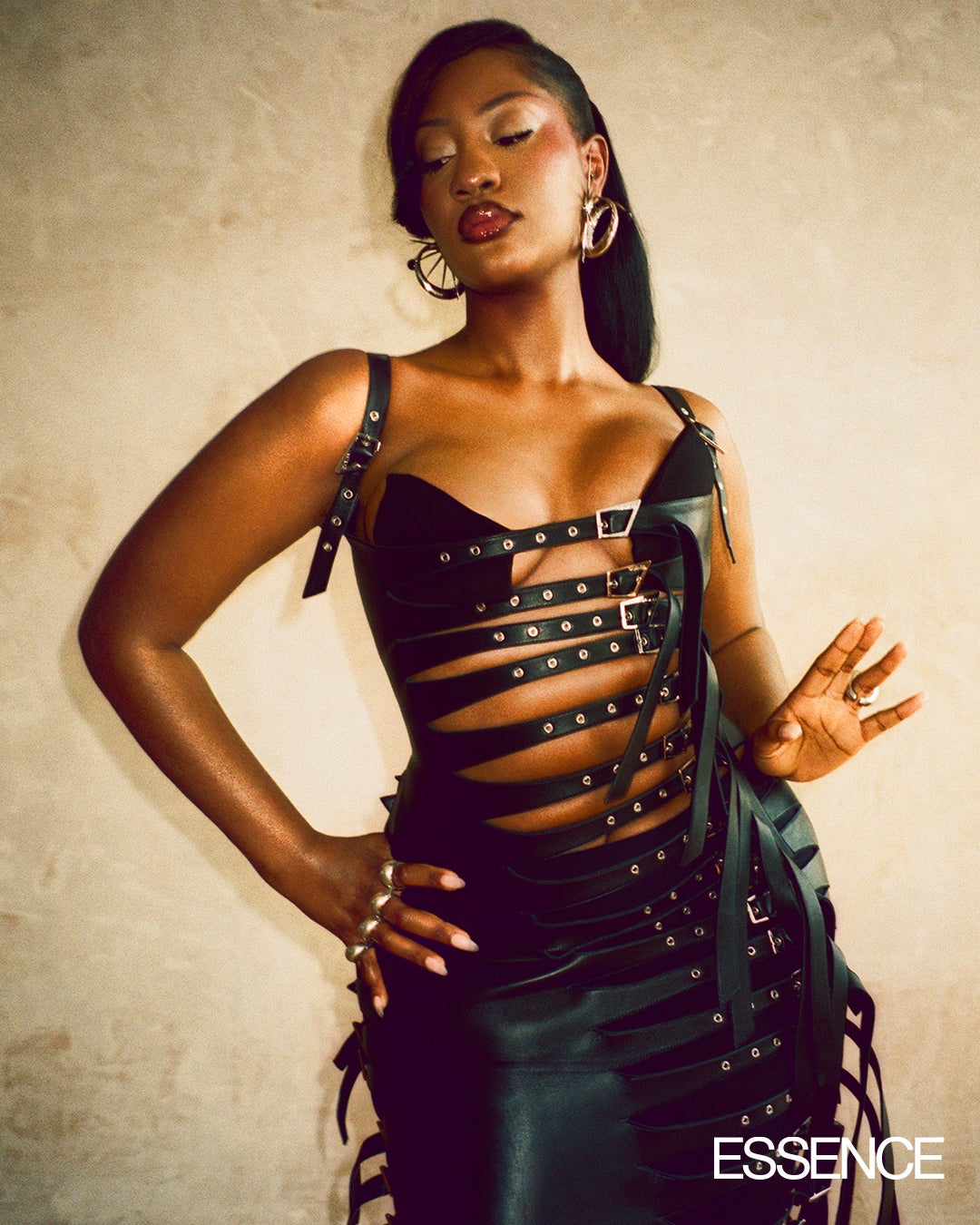
Karefa-Johnson: I want to pivot back to you and what you look for—what you’re looking forward to in the future of your career. What are your dreams or your goals, and where do you see yourself at this time next year if I call you up again?
Tems: I’m building my life for myself. I’m building the rest of my life. And I want to be able to make enough wealth to provide for not just myself, but for people that need me. And I want to have a family someday. I want to go to the mountains and make music and just be free, and go to the beach and just be free, and then go back and go to work and go sell some tea. I have ideas that I’m trying to act upon. I’m building up certain things right now, but that’s my personal goal. I never, ever—at no point, from the beginning of my career—ever said, I want to be a pop star. I’m very focused on building the life that I want to live, and I don’t really need to share the details of what that is. When I close my eyes for the final time, I want to be proud of the life I lived. And that’s the journey that I’m on.
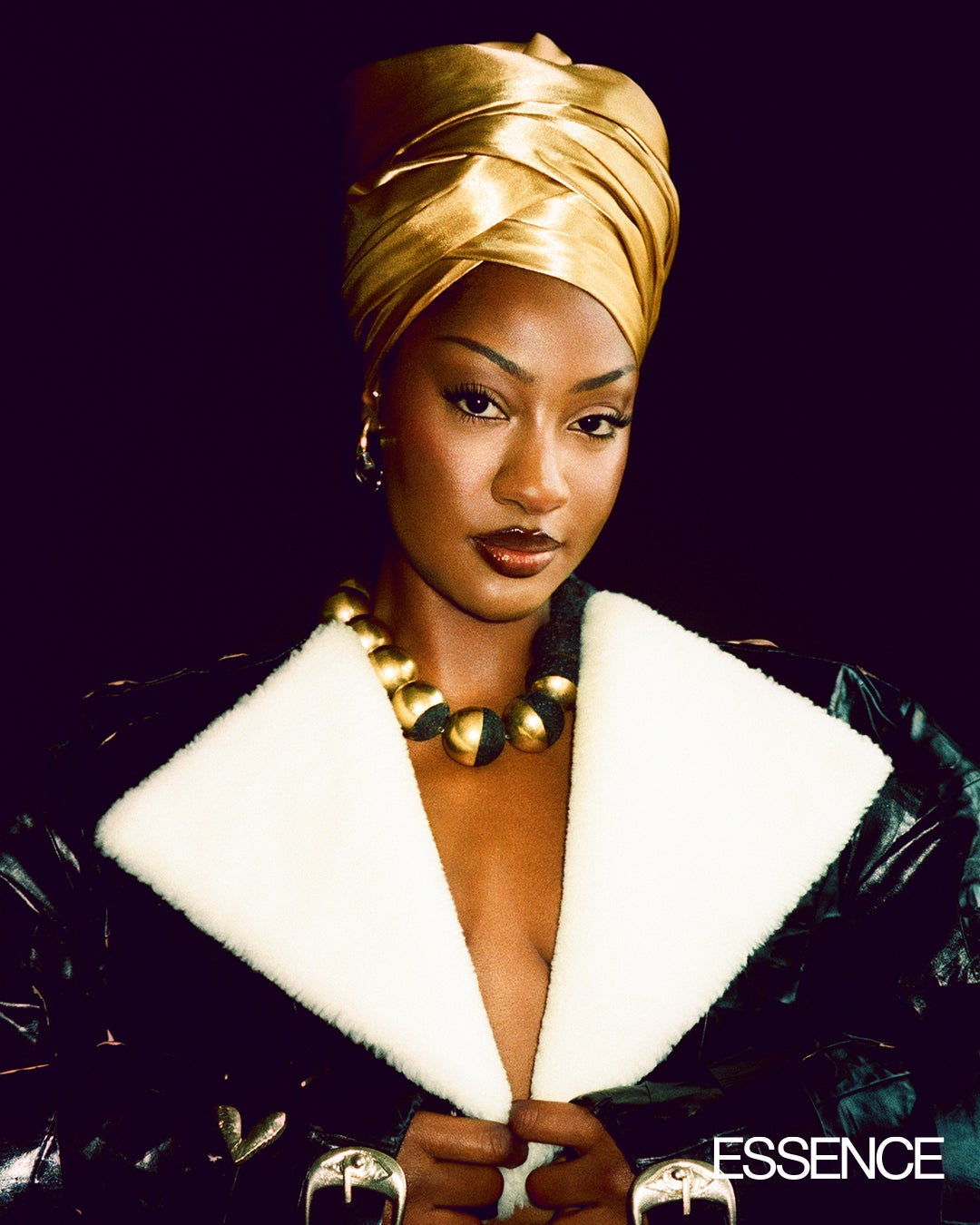
Karefa-Johnson: It’s like the expression, “You make plans, and God laughs.” Really, it sounds like that’s exactly your reality. You don’t have to share the details of what your plan is for you. You know what you are striving to achieve, but there’s very rarely a straight path.
Tems: Very rarely. I know I want to keep making music, but I think it’s just the way in which I’m making the music that might change. But change is constant. Things are always changing, so you just need to be aware of what your goals are, what you really want to do in life, and stick to it. Stand by it. I knew the kind of life that I wanted to live. I knew the kind of artist I wanted to be. So I feel like you have to stand up for yourself. Be there for yourself, always.
This interview was edited for clarity.
CREDITS
Photographed by Liz Johnson Artur
Styled by Gabriella Karefa-Johnson
Hair: Amidat Giwa using Innersense Organic Beauty at Bryant Artists
Makeup: Kayla Perez using Fenty Beauty
Nails: Tinu Bello at Arch The Agency using CHANEL Le Vernis in Ballerina and CHANEL La Crème Main
Set Design: Lee Flude
Tailor: Laima Andrijauskaite
Photography Assistant: Connor Tegan
Stylist Assistants: Verity Azario & Kornelia Lukasewicz
Hair Assistant: Kreszend Sackey
Set Assistant: Senan Fear
Post Production: One Hundred Berlin
Producer: Andre Augusto
Production Assistants: Akilah Cohen Boadi & Joseph Walker
Location: Sunset Studios
Special Thanks: Rosewood London
Production: The Morrison Group


